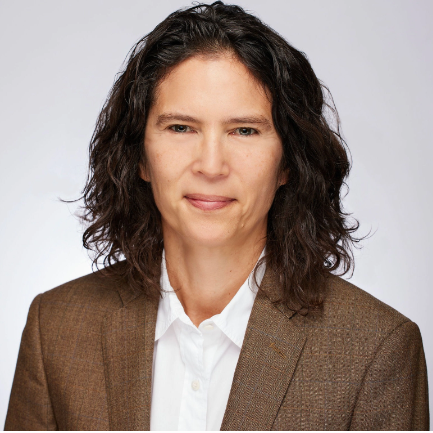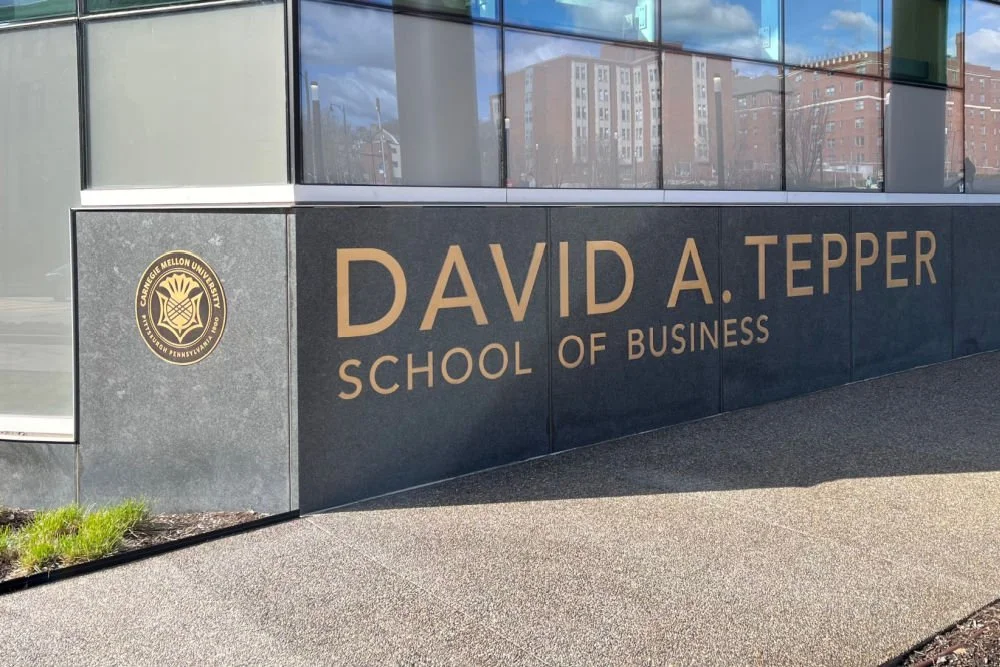Who’s Helping Push the Idea of a Basic Income into the Political Mainstream?
/Sergey Nivens/shutterstock
Our era is no stranger to political recalibrations. On either side of the aisle, movements bubble up from the grassroots and leave philanthropy playing catch-up. But there is also a surprising variety of places where society’s elites have played a role in fostering large-scale political change. LGBTQ rights and the fight for marriage equality are prime examples on the left. So is the slow-burning, funder-backed conservative movement to erode welfare, deregulate business, and cripple the power of labor.
The point is that political reality is less fixed than we’re led to believe. And when they work in concert, funders, wonks and activists can redefine how the public views a set of issues. Take the Economic Security Project, a network focused on the practical and political feasibility of basic income—that is, government policies that give people cash without conditions.
Founded in late 2016, ESP first grew out of conversations among Silicon Valley winners about how to contend with the automated future of work. Over the past two years, it has become a nexus for a broader movement, one that encompasses ideas of racial and gender justice and has crossed the radar of presidential hopefuls like Kamala Harris and Cory Booker. With the progressive policy mainstream now listening, how has ESP arrived where it is—and who’s funding this work?
Radical Idea?
Giving people money with zero conditions may be an unconventional idea, but it’s hardly a new one. “I came across the idea about 20 years ago as a grad student,” ESP co-chair Dorian Warren told me. “It’s about recovering the lost roots of this discussion in the U.S., especially from 20th-century black political activists and thinkers.” Those figures included Dr. Martin Luther King Jr., whose storied civil rights platform also called for a deep reframing of how the economy works.
Fellow co-chair Natalie Foster agreed. “We started ESP in part to root the idea in its social justice lineage. Being in social movements, we’re interested in how those big ideas become law,” she said. Foster is a veteran organizer with previous stints as a digital director for Organizing for America and the Sierra Club. She also co-founded Peers.org and Rebuild the Dream. Warren is an academic by training whose progressive scholarship has segued into organizing work—he’s president of the Center for Community Change Action, the 501(c)(4) arm of the Center for Community Change, where Warren is also a vice president.
ESP’s third co-chair comes from a different background: tech. Once Mark Zuckerberg’s roommate at Harvard, Chris Hughes parlayed his early role at Facebook into a fortune that he tapped to get ESP off the ground. “A lot of folks in tech were initially intrigued by the idea of a guaranteed income,” he told me. “It was a counterintuitive idea, that giving someone money is the best way to help them make more money.” But the more research you do, he said, the more a guaranteed income seems like something that can actually happen in the United States.
In a 2018 book called Fair Shot: Rethinking Inequality and How We Earn, Hughes makes a passionate and personal case for guaranteed income, arguing from a position of privilege—and extreme luck, as he himself tells it—that truly redistributive policies could rebalance the current winners-take-all economy. Alongside tech funders like the Omidyar Network, Good Ventures, Google.org and fellow Facebook founder Dustin Moskovitz, Hughes has supported and advocated for GiveDirectly, a platform enabling direct cash payments to impoverished people in Africa.
Between them, ESP’s co-chairs represent what the organization strives to be: a bridge-builder between activist, academic and donor circles that can move a marginal idea to the center, undergirding it with research and demonstrative experiments. In that sense, it’s already seen some success.
Related:
This Idea for Fighting Global Poverty Keeps Getting Hotter, Especially in Silicon Valley
Who's Backing the Nonprofit Investing Directly in Poor Families?
From Silicon Valley to Stockton and Jackson
In addition to support from Hughes, ESP drew its initial funding from the world of tech. “When the modern incarnation of the basic income idea kicked off, leaders in tech were thinking 10, 20, 30 years out about the problem of automation,” Foster said. Those conversations led to initial interest among tech funders, but ESP’s co-chairs emphasized that social justice was a part of the organization’s DNA from the start. Funders like the Omidyar Network and Google.org got on board during that early stage, with other Silicon Valley funders like the Hewlett Foundation and Mike and Kaitlyn Krieger’s Future Justice Fund joining in.
In its first year, ESP focused on research, organizing and “arts and culture” strategies to shift narratives. Initial work involved leveraging interest among relevant networks—including philanthropic ones—to answer the question: should we have a basic income in the U.S., and what would that look like? At that stage, ESP funded projects at a number of think tanks including the Roosevelt Institute and Stanford University’s Basic Income Lab. The goal was to build up an evidence base around an idea that tends to provoke knee-jerk reactions from supporters and critics alike.
During year two, ESP took findings from those initial investments and began funding work in places with the greatest potential for political momentum. That includes practical guaranteed income demonstrations, which ESP has underway right now in Stockton, California, and Jackson, Mississippi.
“As the work has become more and more practical, you see more funders who care about economic justice starting to get on board,” Foster said. Institutional funders like the Rockefeller Foundation and the Joyce Foundation have both backed ESP, as well as the California-focused Goldhirsh Foundation. In addition to Hughes, a number of individual donors also support the work, including Roy and Sara Bahat, Peter Barnes, Serkan Piantino and Albert Wenger.
“There’s a critical mass now among funders that wasn’t there three years ago,” Warren said. “[This work] has opened a conversation about the difference between incremental strategies and transformative policy that’s meeting the moment. For funders who haven’t taken the leap, it’s now on their lips. People are asking me about it.”
That shift has a lot to do with ESP’s demonstration projects, clear symbols of what Hughes calls “the business of bridge-building between ideas that are exciting and policies that can actually happen.” One of them, the Stockton Economic Empowerment Demonstration (SEED), is currently providing about 100 residents of Stockton, California, with an unconditional income of $500 a month for 18 months. ESP is collaborating with Stockton’s mayor, Michael Tubbs, on the project. At just 28 years old, Tubbs is the city’s youngest mayor, as well as its first African American one.
Foster also spoke about Tubbs as the first mayor in modern American history to take on guaranteed income in a serious way. “UBI [universal basic income] was the kind of idea that was talked about, but Stockton shifted the conversation and opened up the political imagination. It’s demonstrating what a city’s willingness plus philanthropic dollars can do,” she said.
“We talk a lot about Stockton,” Hughes added, “but a dozen cities have been trying to figure out how to do different versions of the idea.” Those strategies could include a data dividend—in which tech platforms compensate users for their data, currently furnished for free. ESP is also actively exploring a cost-of-living refund: reworking the current earned-income tax credit (EITC) to provide working people with a certain level of guaranteed income free of conditions.
The folks at ESP favor policies like a cost-of-living refund because they’re more palatable than simply insisting on a universal basic income. “People from the UBI community often see it as a silver bullet,” Hughes told me. “We see these ideas as a critical piece of a set of benefits, everything from childcare to education to potentially a job guarantee.” As of right now, multiple presidential hopefuls are backing or have pushed cost-of-living refund policies, including Kamala Harris, Cory Booker and Tim Ryan.
A Broader War of Ideas
Starting in December of 2018, ESP is also funding the Magnolia Mother’s Trust, a year-long pilot granting $1,000 a month without conditions to 20 black mothers living in poverty in Jackson, Mississippi. Like SEED, the project is still in progress. But ESP wants it to demonstrate, for one thing, that the long-standing “welfare queen” narrative shouldn’t be trusted.
Warren, Foster and Hughes are united in their stance that economic insecurity cannot be discussed in isolation from race and gender disparities, including wage gaps and the devaluation of care work. “There’s an incredible feminist argument for guaranteed income,” Foster said. ESP’s intersectional approach has won it buy-in from a broad range of supporters who espouse progressive ideals, tech funders, legacy foundations and local officials.
Now in its third year, ESP wants to think bigger about the impact of guaranteed income on the country’s broader war of ideas. With so many liberal funders preoccupied since 2016 with countering Trumpism, the issue’s proactivity is an asset. “Among groups on the ground, there is a deep hunger for an offensive affirmative vision that’s not just about protecting existing things, but about what we can build,” Warren said.
Still, despite ESP’s hopeful assessment of its own progress, guaranteed income faces significant political hurdles. With the exception of Alaska’s Permanent Fund—a telling example of the idea’s viability in a red state—government benefits are anything but universal or guaranteed. And in recent decades, there’s been a powerful drive from the right to attach more conditions to public assistance. Most recently, some states with backing from the Trump administration have moved to impose work requirements on Medicaid recipients—policies that have significant support among an American public that’s long believed deeply in the value of work. Liberalism has often suffered negative political consequences, especially among white working-class voters, when it’s seen as rejecting that value and backing policies that offer “something for nothing.”
The idea of basic income also has some critics on the left. Writing in Medium last fall, Douglas Rushkoff called the UBI “hush money” and argued that the tech elite favored the idea because it diverted attention away from the need for deeper reforms to digital capitalism. “UBI is nothing more than a way for corporations to increase their power over us, all under the pretense of putting us on the payroll.”
The team at ESP doesn’t seem too worried about political conventional wisdom or obvious criticisms of a basic income. They believe a great deal is possible in the states and localities. As Foster pointed out, we’ve seen this play out in red states in the mid-terms: When people get the chance to vote in their economic self-interest, they do it. Taxing people like Hughes to provide unconditional cash to the lower and middle classes shouldn’t be too difficult a sell in a democracy.
In the end, the growing momentum behind a basic income traces back to a collective failure on the part of America’s elites to own up to the deeper drivers of inequality. Philanthropy’s reticence to fund around causes like workers’ rights, fiscal policy, and Wall Street regulation has hampered advocacy to change that. Whatever the future holds for a guaranteed income, it’s significant that some funders are getting at those root issues with bold policy ideas.
Related: Systemic Failure: Four Reasons Philanthropy Keeps Losing the Battle Against Inequality







































